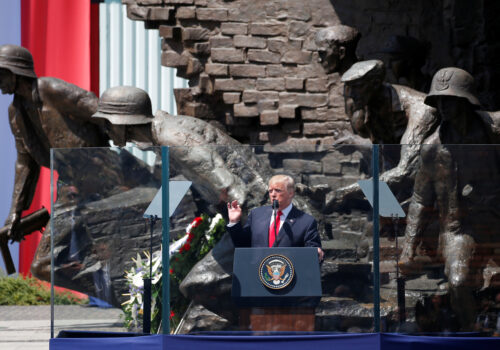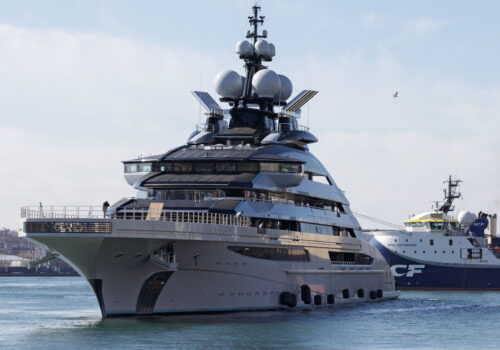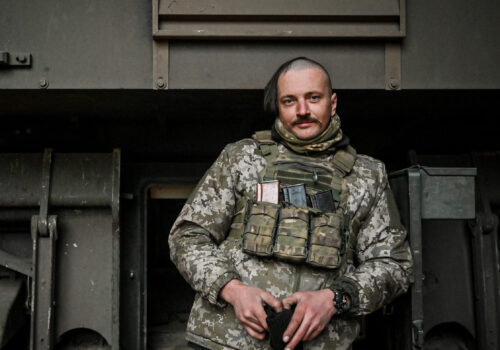Russia’s full-scale invasion of Ukraine has displaced millions and caused tremendous hardship and dislocation. But Ukrainians have pushed to strengthen their national identity while under threat from Moscow and make their country better even during war. Some businesses have managed to attract investment when others said it was impossible; Ukraine’s civil society has pushed through real reforms to curb corruption; Ukrainian cooks astonish world audiences with their clever new riffs on old recipes; and writers and literary figures have moved from the novel to the newspaper to capture societal changes.
What have Ukrainians been doing to maintain their national identity and a semblance of everyday life during the war? What stories of everyday heroism and ingenuity inspire a nation during this time of crisis?
Melinda Haring, deputy director of the Atlantic Council’s Eurasia Center, moderates a panel discussion with Yuriy Fylyuk, chief executive officer of Promprylad.Renovation, Yevhen Hlibovytsky, partner at Ukrainian consulting firm Pro.mova, acclaimed Ukrainian author Andrei Kurkov, and Mykhailo Zhernakov, co-founder of DEJURE Foundation.
This event will not feature an in-person audience. You will be able to join via desktop or mobile app, through your web browser, or by phone. To join the question and answer period, you must join by app or web.
Register below for details on joining the virtual audience.
Follow us on social media
and support our work
issue spotlight

Europe in crisis
War in Ukraine
Experts from across the Atlantic Council are assessing the consequences of Russia’s February 2022 invasion, including what it means for Ukraine’s sovereignty, Europe’s security, and the United States’ leadership.

The Eurasia Center’s mission is to promote policies that strengthen stability, democratic values, and prosperity in Eurasia, from Eastern Europe in the West to the Caucasus, Russia, and Central Asia in the East.


